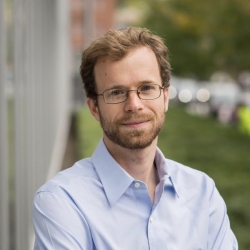April 21: Michael Davidson, University of California, San Diego
Carbon Neutrality in China: What's Behind the Numbers?
View a recording of this talk.
ABOUT THE SPEAKER
michael_davidson.jpg

Michael R. Davidson is an assistant professor joint between the School of Global Policy and Strategy and the Department of Mechanical and Aerospace Engineering at the University of California San Diego. His research and teaching center on the engineering implications and institutional conflicts inherent in deploying low-carbon energy at scale, with a particular focus on China, India, and the U.S. He holds a Ph.D. in engineering systems from MIT and was previously a research fellow and associate at the Harvard Kennedy School Belfer Center for Science and International Affairs. Prior to that, he worked for the Natural Resources Defense Council and held a Fulbright Fellowship to Tsinghua University.
ABOUT THE TALK
China has made some significant medium and long-term climate commitments, including to peak carbon emissions by 2030 and achieve carbon neutrality by 2060. These imply a massive shift in the direction of an economy that is still building coal plants and growing its fossil fuel use. Wind and solar installations will likely need to exceed 100 GW per year for decades. In this talk, we will explore the implications of meeting these long-term targets on planning and operations in the power sector. Rapid expansion of intermittent renewables can lead to excessively high curtailment rates without broader reforms to power sector institutions. Markets and business models for thermal power plants must adapt to changing demands from a system flexibility perspective. The development of transmission and distribution infrastructure will shape the available options to scale up low-carbon energy. We will go beyond the numbers to discuss what technologies and policies are really necessary, what are nice to have, and what are just red herrings.
Website: mdavidson.org/